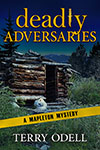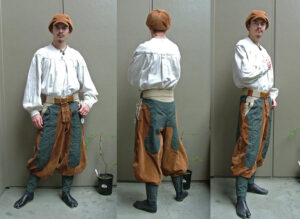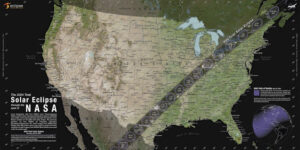A few months ago, I was asked and agreed to participate in a first of its kind literary event at the Berkeley County-Martinsburg Public Library here in my new West Virginia hometown. It would be a meet-n-greet, book signing supported by Four Seasons Books in Shepherdstown, WV. A few weeks later, the organizers reached out again and asked if I would mind if a second author joined the event. Magnanimous fellow that I try to be, I agreed right away, then asked for the other author’s name and genre. I had never heard of the name, probably because the genre was romance.
Well, that would be different, wouldn’t it? I’d never done a panel that mashed up romance and thrillers. I even agreed to promote the event on my radio show and put it out on my Facebook feed as the time approached.
About two weeks out, the organizers sent an email about how to get tickets for this event.
Wait. What? Tickets? In advance? They were free, but they were required to get through the door. This was new to me, and I’ve been doing this stuff for a long time. When I clicked on the link to the tickets and discovered that the event was already sold out, I said to myself, “Self, you should have taken this romance writer you’ve never heard of more seriously.”
Not that anything would have changed.
It turns out that Jennifer L. Armentrout, a delightful, fabulously successful #1 New York Times bestselling author does not write romance. She writes . . . wait for it . . . young adult paranormal sci-fi romance. And she lives about eight miles from me. A bit of a recluse, I believe her when she says she has not taken a vacation or even a weekend off in over 10 years. That’s how she’s been able to churn out 60 books in that period of time. But she’s wildly active on social media, so when she announced that her fans could meet her in Martinsburg . . .
The event.
When I arrived at the library and was ushered to the second floor to the green room, I still didn’t get it. Worse, I didn’t think the library got it. They’d cleared out the entire space–bookshelves and everything–and set up hundreds of chairs. Who the hell was going to fill them?
The the human spigot opened. At 1:50, ten minutes before the event was to start, people started flowing up the stairs, each of them sporting a yellow wrist band that proved they’d been ticketed. Nearly all carried books, many carried bags of books. None of the books bore one of my covers. I have never seen such a rainbow of different hair colors, or variety of facial piercings and tattoos. I put the median age at twenty-three–twenty-five, max.
The discussion.
Once everyone was seated, the moderator introduced Jennifer and me, and we took our places behind the long table next to the display of our books. The light hearted banter we’d developed in the green room transferred well onto the stage and the audience laughed a lot, so a good time was had by all.
For me, though, there was one truly sobering moment–the one that demonstrated just what a dinosaur I am in this business. The question was something like, “Tell us how you sold your first book. How did you find your agent, you know how did all of that work?”
Jennifer answered first. The only part I remember is, “I sold my first book in 2012, and I . . .” From there, she ground through social media/computer-speak that clearly made perfect sense to the audience but meant nothing to me. She talked about promotional sites I’d never heard of and something really big on TikTok. The whole time she was speaking, my brain was screaming, oh, shit, I’m next!
When it was my turn, I played the truth for a laugh. In 1994, after I finished marking up the pages of a book called Writer’s Digest Guide to Literary Agents, I sent my query letter and self-addressed stamped envelope . . .
It’s an entirely different world now.
The signing.
I’ve signed next to Lee Child and Mary Higgins Clark. I have never seen fans as passionate as the ones who stood in line for three hours to have their books signed by Jennifer L. Armentrout. One fan had driven overnight from Buffalo to be there, and another had taken a train from Connecticut. At least two fans were so overwhelmed that they cried.
I’m happy to say that I sold and signed a dozen or so books, too, but to be honest, they felt like sympathy sales. As much as I tried not to look sad and lonely as I was largely ignored, maybe I didn’t quite pull it off.
Lessons learned.
First, I learned that there’s a genre called young adult paranormal sci-fi romance.
More importantly, I experienced my first vivid, first-person demonstration of the power of social media to spread word of an event. Unfortunately, I think there’s a generational component to those particular social media outlets. I could be wrong, but I don’t see TikTok as a destination for the average Jonathan Grave fan.

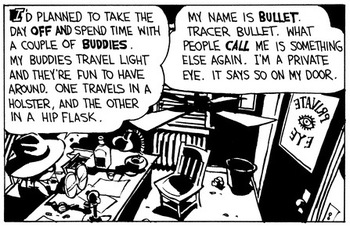

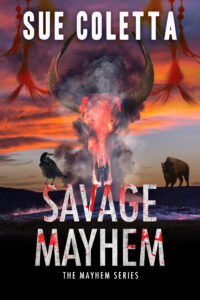











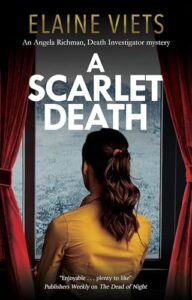
 I was going to jump back with a writing-related post, but let’s be honest. We get those all the time here at TKZ, but how many firsthand posts about a 3 week trip to New Zealand are in the archives?
I was going to jump back with a writing-related post, but let’s be honest. We get those all the time here at TKZ, but how many firsthand posts about a 3 week trip to New Zealand are in the archives? We covered almost the entire country, as you can see by the map. The tour lasted 18 days. We also arrived a couple of days prior to our tour to allow for potential delays and to get over jet lag. (There’s a 19 hour plus a day time difference between Auckland and Colorado on the way out. We get that day back on the return trip.)
We covered almost the entire country, as you can see by the map. The tour lasted 18 days. We also arrived a couple of days prior to our tour to allow for potential delays and to get over jet lag. (There’s a 19 hour plus a day time difference between Auckland and Colorado on the way out. We get that day back on the return trip.)

















